
Fast, affordable Internet access for all.

Fiber to the Home
Colorado has long been home to some of the most innovative municipal broadband projects in the country. That trend has only accelerated with last year’s voter-approved elimination of municipal broadband restrictions, and it’s now being buoyed by a massive new wave of state grants that should further expand affordable broadband to long-neglected parts of the state.
Colorado Gov. Jared Polis recently announced the first of multiple broadband investments using stimulus funding from the U.S. Treasury’s Capital Projects Fund (CPF) program. The CPF is funded by $10 billion made possible by the American Rescue Plan Act (ARPA), and is a key part of the state’s goal to bring affordable broadband to 99 percent of Colorado residents by 2027.
According to the Governor’s office, the state just authorized $113 million in CPF funds on 13 projects that will bring fiber service to nearly 19,000 homes and businesses across Colorado. State officials say the funding will be heavily focused on projects in the South and Southwest portion of the Centennial State, where connectivity needs are greatest.
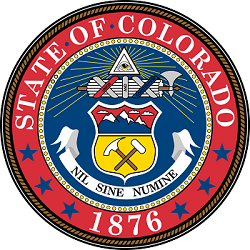
The Colorado Broadband Office says it received 112 applications asking for more than $642 million in broadband funding across the state–five times greater than the allotted awards.
Municipal finance is not for the weary.
But for the wise – at least according to the number-crunchers enmeshed in that world – one particular sliver of municipal finance (issuing bonds) has long been a viable way for local communities to finance the construction of municipal broadband networks. And as one Communication Union District in Vermont has discovered, bonding is better – when it’s rated.
Shining a light on bond-backed municipal broadband projects is the recent announcement that ECFiber, Vermont's first Communications Union District (CUD), obtained a BB rating from Standard & Poor Global, the nation’s preeminent credit rating agency. The rating will allow ECFiber to pay lower borrowing costs to complete a network expansion project.

“This is a historic moment,” Stan Williams, ECFiber’s municipal finance advisor said in a prepared statement. “For the first time, a CUD will be issuing a rated bond, which means that many more investors will be competing to buy those bonds, lowering the interest rate. ECFiber has been managed for its entire existence to reach this goal. It’s hard to overstate the importance of this achievement.”
East Central Vermont Telecommunications District governing board chairman F. X. Flinn added that the new bond rating "was made possible by over 16 years of grass-roots persistence, driven by a conviction that working together, our region could overcome the failure of the marketplace to offer decent broadband to all our homes and businesses."
Boulder, Colorado officials have issued a new request for proposal (RFP) seeking partners for their ongoing quest to deliver affordable fiber to the city of 104,000.
According to an announcement by Boulder leaders, the city is offering potential partners a long-term lease of city-owned dark-fiber backbone infrastructure and a right of way agreement for the construction and operation of a network delivering Internet service offering 1 Gbps or more to all Boulder homes and businesses. Responses are due by March 1.
When we last checked in with Boulder in April of last year, the city was putting the finishing touches on a $20 million, 65-mile dark fiber backbone, funded by the competitive sale of its 2018 Broadband Taxable Certificates of Participation (COPs). The competitive sale was used to ensure that Boulder could get the lowest interest rates possible in financing the construction of the backbone.
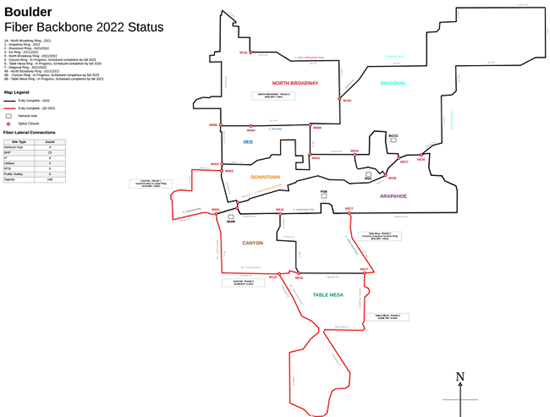
While the process was technically started back in 2018, and then delayed by the pandemic, city officials remained committed to moving the project forward.
“What we are trying to do in Boulder – if we can find the right partner or partners – is about creating more competition; increase the competitive marketplace locally,” project manager and independent consultant Tim Scott told ILSR last year.
Like so many U.S. communities, Boulder sees limited competition between the local cable company (Comcast) and the local phone company (Centurylink/Lumen) resulting in slow speeds, spotty coverage, high prices, and substandard customer service.
NEK Broadband continues to bring affordable fiber access to the long-neglected corners of the Green Mountain State. According to the latest update by NEK Broadband, a recently completed rollout has delivered affordable fiber access to 700 new addresses across multiple rural Vermont communities.
NEK Broadband is one of nine Communications Union Districts (CUDs) scattered across the state of Vermont. NEK Broadband alone represents 45 Vermont communities across Caledonia, Essex, Orleans and Lamoille Counties in the northeast part of the state (see the full list of communities here).
The CUD’s latest expansion plan primarily focused on bringing fiber access to parts of Danville, Kirby, Lyndon, St. Johnsbury, Walden and Wheelock, Vermont. With this latest expansion, NEK Broadband now provides fiber access to 2,100 predominantly rural Vermont residents in total, many of which only received broadband for the first time last year.
“We’re so pleased to end 2023 by giving more residents of the NEK access to high-speed internet,” Christa Shute, NEK Broadband’s Executive Director, said in a prepared statement. “We plan to bring even more residents online in early 2024.”
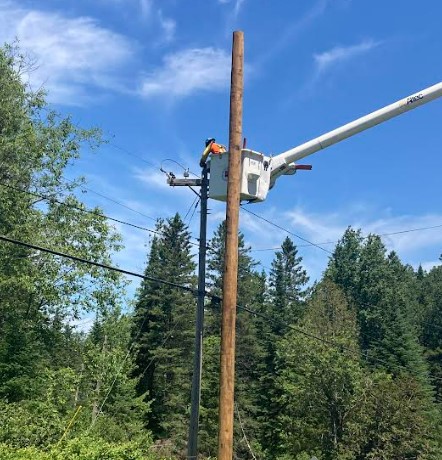
The CUD currently provides upgraded users with access to speeds that exceed those provided by cable and DSL providers, even in many more urban markets.
NEK Broadband currently offers four tiers of broadband service: symmetrical 50 megabit per second (Mbps) service for $80 a month; symmetrical 250 Mbps service for $103 a month; symmetrical 500 Mbps service for $135 a month; and a symmetrical gigabit per second (Gbps) offering for $250 a month.
Windstream Communications and local nonprofit electrical cooperative Colquitt Electric Membership Corp are partnering on a $32.5 million fiber deployment that will bring fiber optic broadband to 17,000 homes and businesses in Colquitt County, Georgia.
Once completed sometime next year, the partnership should help deliver last-mile fiber access to roughly 70% of Colquitt County residents, many of which either have no current broadband access, or have long been stuck on sluggish, expensive, and dated digital subscriber line (DSL).
Windstream will maintain ownership of the finished network and provide residential service under its Kinetic brand, while Colquitt EMC will utilize the network to help maintain and support the company’s existing electrical grid.
Kinetic will use $21.4 million in American Rescue Plan Act (ARPA) grants to fund the network build, while providing $11.1 million of its own funds to cover any cost overruns. The company says it has already laid 180 miles of cable of an expected 440 miles total county wide.
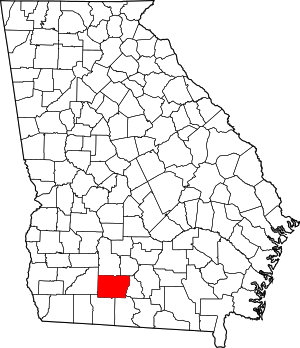
“Colquitt EMC has been an instrumental part in the delivery of fiber in its service area,” Kinetic Georgia operations President Michael Foor said in a prepared statement. “We are grateful for its willingness to support these efforts.”
As ILSR has long noted, PPPs can be a decidedly mixed bag. They can be good for municipalities unable or unwilling to handle the logistics or cost of a major deployment alone. At the same time, locals don’t have much or any control over the trajectory of the finished network, including pricing that can quickly creep out of the range of affordability.
Los Alamos County, New Mexico joins the growing list of municipalities looking to explore a community-owned broadband network in a bid to improve resident access to fast, affordable, next-generation fiber.
The request for proposal (RFP), originally issued August 13, called for design, planning, and construction partners for a locally-owned and operated fiber network. An updated RFP was issued on December 12, 2023 stating that applications for phase two of their planned project were deemed “incomplete.” The county has given potential partners until January 12 to respond.
“The county team is now reviewing the submitted proposals,” the county states. “Once one is selected and an agreement finalized, the county will request the council award a contract. This may occur in early 2024.”
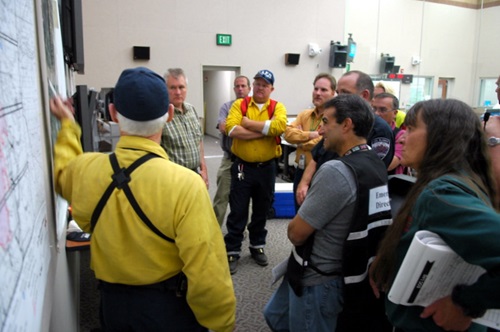
The RFPs come after county council leaders passed a motion last January declaring “…that high-quality reliable telecommunication including broadband is an essential service.” Los Alamos County officials did not respond to repeated requests for comment asking for more detail on the county’s goals. Local outlets suggest more details should emerge in 2024.
New Mexico is poised to receive more than $635 million in broadband subsidies courtesy of the Broadband Equity Access and Development (BEAD) program, made possible in turn by the 2021 Infrastructure Investment and Jobs Act.
As the new year begins, the Institute for Local Self-Reliance (ILSR) announced today its latest tally of municipal broadband networks which shows a dramatic surge in the number of communities building publicly-owned, locally controlled high-speed Internet infrastructure over the last three years.
Since January 1, 2021, at least 47 new municipal networks have come online with dozens of other projects still in the planning or pre-construction phase, which includes the possibility of building 40 new municipal networks in California alone.
Waterloo, Iowa’s municipal broadband project has taken a major step forward after nearly two decades of planning.
Waterloo Fiber officials just launched their first limited fiber trial, will connect their first commercial customers in February, and are on target to deploy affordable fiber at speeds up to 10 gigabit per second (Gbps) to every last city resident by 2026.
When we last checked in with Waterloo in February of last year, the city was putting the finishing touches on a plan to spend $115 million to build a fiber backbone accessible to all 67,695 Waterloo residents, after locals approved the city issuing general obligation bonds to fund the start of the three-phase construction project.
Construction of the network began last summer at a groundbreaking ceremony hosted by Waterloo Mayor Quentin Hart.
“It will be the lifeline that connects our entire community, enabling businesses to thrive, students to excel and families to stay connected," Hart told attendees. "This fiber system will lay the foundation for a smart city innovation, economic growth and an enhanced quality of life for all our residents."
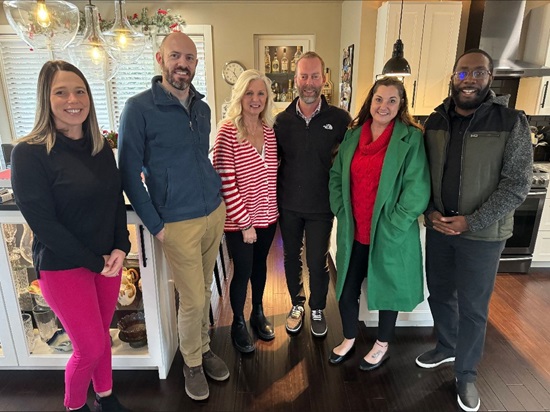
Last month the city connected the first of four participants in a limited pilot project.
A looming new bill by Republican Kentucky State Senator Gex Williams could undermine decades of broadband progress made in the state’s capital city by a popular locally-owned utility, Frankfort Plant Board (FPB).
Home to 28,000 Kentuckians, local residents and utility officials in Frankfort are incensed at the bill, which they believe will unnecessarily result in higher rates, fewer jobs, and less broadband competition overall.
Williams is circulating a bill in the Kentucky state legislature that, if passed, would force FPB to sell its broadband division to a private-sector company and subject it to more stringent oversight requirements. In guest editorials circulated in the local press, Williams insists his goal is to “rein in” the FPB, which he deems part of a “runaway” government that lacks accountability.
But there’s no evidence for Williams’ allegations of limited accountability, and locals and activists alike believe that the legislator is simply running interference for regional broadband monopolies upset by the added competition created by the popular, publicly-owned utility.
Another Community-Owned Solution Addressing Market Failure
Like many local U.S. communities, Frankfort sees a notable dearth of meaningful broadband competition, resulting in patchy broadband coverage, slow speeds, high prices, and abysmal customer service. Enter the Frankfort Plant Board, which has been deploying affordable fiber access across the community under the NEXTBAND brand.
The Idaho Broadband Advisory Board (BAB) has greenlit $120 million in broadband grants from the Idaho Capital Projects Fund (CPF) to fund 18 different broadband projects across Idaho, delivering affordable fiber access to 30,000 homes and businesses, many for the first time.
It’s the latest round of funding made possible by the American Rescue Plan Act, passed in 2021 to help soften the impact of COVID. A breakdown of the finalized awards indicate 18 different providers received funding from BAB, including a $9.8 million award to Comcast and more than $11 million to Ziply Fiber.
“These awarded projects are another important step in furthering the Idaho Broadband Advisory Board’s mission of ensuring that all Idahoans have access to affordable and reliable internet,” Idaho Broadband Advisory Board Chair, Representative John Vander Woude said in a prepared statement. “These projects will connect homes and businesses across the entire State.”
Seven of the award recipients were individual counties pursuing varying options to shore up access to largely rural unserved and underserved residents.